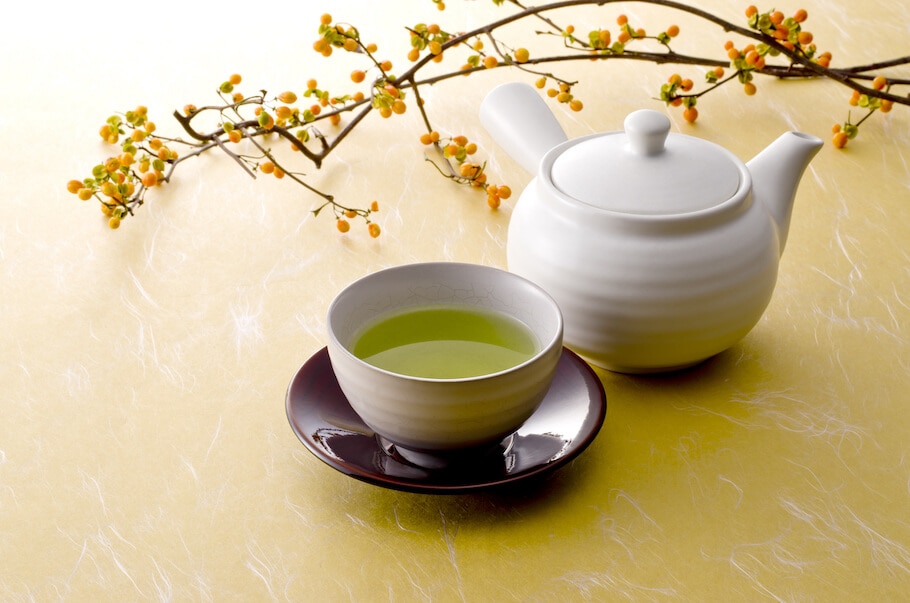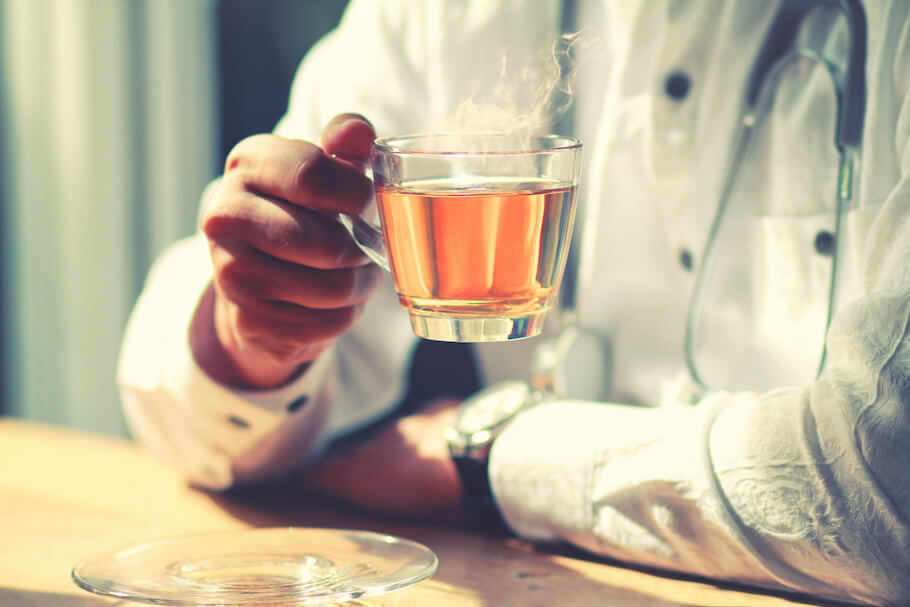

COVID-19 pandemic fatigue is affecting everyone. As we continue to face the tolls of the virus, the mental health of many declines. This is more so for our fearless, and tireless, frontline workers in the healthcare community, as well as all of the essential workers keeping our cities running, stay-at-home parents tasked with juggling home-schooling and work, and teachers and other caregivers.
A recent study of 1,119 healthcare workers indicated that they’re suffering from fatigue, stress, and are simply stretched too thin. The report showed that 93% were experiencing stress, 86% reported experiencing anxiety, 77% reported frustration, 76% reported exhaustion and burnout, and 75% said they were overwhelmed.
Staying healthy, getting a good night’s sleep, and finding ways to simplify your mind and life are great ways to combat these issues. While we’re not saying Japanese green tea is the cure-all for everything, it actually can greatly help front liners, and anyone working long hours in stressful situations, on your journey to simply you and manage the craziness of this time better.
Here are seven ways Japanese green tea can help…

It’s not uncommon for an average shift for healthcare workers to be 12 hours, while some have been known to be even longer. Along with a good night’s sleep and maintaining a healthy mind and body, the key to working those long hours is having ample energy. Japanese green tea is a healthy way to help medical staff stay awake, energized, and alert for those graveyard shifts.
Keep in mind, it’s not just the caffeine in tea that helps with this, though it is a significant part of it. It’s also about the combination of the caffeine with the amino acid, theanine , which has a calming effect that’s at work here. The relaxation properties of theanine help to balance the energy of the caffeine, without masking its effects, so that the energy you get from caffeine in Japanese green tea is not as jittery as coffee or energy drinks.
Once again, it’s all about green tea’s versatile ingredient, theanine. Studies show that drinking 3-4 cups of green tea that is low in caffeine throughout the day can reduce fatigue and stress. In brief, it does this through theanine’s ability to relax muscle tension and reduce blood pressure. Bancha and Hojicha are great options here as they have the lowest amount of caffeine.
With being alert and energized, typically comes an increase in focus as well and theanine is the star component here too. A Japanese study found that the theanine found in tea helped people with focus in their daily activities. This amino acid is said to work by changing the electrical activity in the brain by increasing alpha waves. This particular study also looked at anxiety in students and reported that those receiving the theanine showed improved attention and better reaction times, as well as a lower heart rate, as compared to those who took the placebo.

One other great way to use the caffeine in Japanese green tea to its fullest ability is to drink it before a workout or a workday that involves both physical and mental exertion. Tea authority ITO EN Global explains it this way: “If one consumes caffeine and then does a moderate amount of physical exercise before the muscles’ internal energy source (glucose or glycogen) is used, there is a phenomenon whereby fat is used as an energy source, thereby helping enhance stamina.”
Gyokuro and Matcha are great options for Japanese green teas for anyone looking to increase energy, sharpen focus, and improve stamina because they have the most amount of caffeine out of all the varieties. Their high caffeine content is due in part to being grown in the shade. The caffeine breakdown for five common Japanese green tea types looks like this: Gyokuro (3.48%), Matcha (3.29%), Sencha (2.64%), Hojicha (1.76%), and Bancha (1.55%). According to the renowned book, “Learn All About Japanese Tea: Official Text of Japanese Tea Certification”.

Keeping healthy means maintaining a strong immune system, and we all know that vitamins and nutrients can help with that greatly. Studies on Vitamin C,, for instance, have shown that it can help improve the function of the immune system and even reduce the duration of common cold symptoms.
But, did you know that various Japanese green teas are actually high in Vitamin C as well? Sencha contains the most Vitamin C of any Japanese green tea, around 1.5 times that of red peppers, which have one of the highest concentrations among all vegetables. Other than Sencha, Bancha has a great amount of Vitamin C as well, according to the renowned book, “Lean All About Japanese Tea: Official text of Japanese Tea Certification”.
As we know, another key factor in managing a 12-hour workday is having a good night’s sleep. While on first thought, the idea of a caffeinated beverage actually helping with sleep sounds impossible. But studies have shown that green tea can actually promote both the quality of sleep and the quantity.
The reason is simple: Because theanine works to reduce stress-related hormones and neuron excitement in the brain, it helps the brain to relax. When the brain is relaxed, and can “shut off” at night, it’s easier to get in those recommended eight hours of uninterrupted sleep. Hojicha is once again the best choice here as it contains theanine and very low levels of caffeine, which have a relaxing effect on the mind and body.

With relaxation, comes calmness. Much is said about the health and mental health benefits of Japanese green tea from its key components, but there’s another less talked about aspect of it that is also good for the mind and soul: the aroma.
The fragrances of green tea, which can range from the toasty notes of Genmaicha to the grounded earthiness of Matcha, can also help people relax and destress because it’s a form of aromatherapy. Just as scented candles, essential oil-infused baths, or incense, the smell of tea and the feeling of the warmth of the tea cup in your hand is instantly soothing and a great way to practice self-care and a soothing accompaniment to a meditation practice.
Related Article: New Year, New You. Finding Your “Zen” Through Japanese Green Tea.
As you head out on your own busy week, we hope you will let Japanese green tea ease your stress and guide you through a more relaxed journey to simplify you. Our team would also like to take a moment out of our own busy day to thank the front-line workers during this pandemic for your hard work, dedication, and sacrifice. We hope some of these tips will help.
For more information on how to stay happy, healthy, and mindful with the help of Japanese green tea, follow us on social media: @justteayourself.
Learn more about each Japanese green tea here.